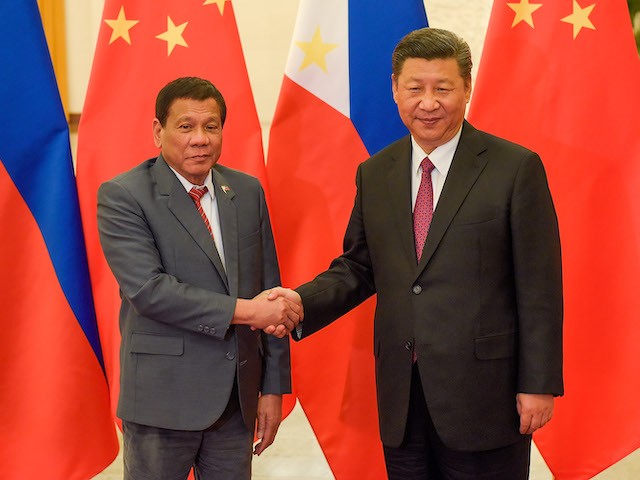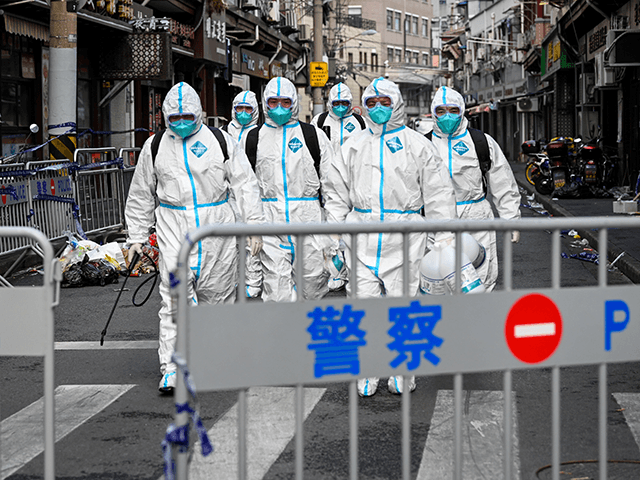Leaders from the Group of Seven (G7) nations on Sunday announced a $600 billion infrastructure plan for developing nations – a program clearly intended to compete with China’s Belt and Road Initiative (BRI).
Germany’s Deutsche Welle heard signals from the G7 summit in the Bavarian Alps that their plan would provide financial benefits to developing countries without the debt traps and political interference that characterize China’s loans:
Beijing has been accused of trapping low-income countries into unaffordable debts to be part of its trillion-dollar BRI push, which is seen as expanding China’s trade power with Africa, Asia and Europe.
The new G7 fund will focus on climate initiatives, among other projects, including a $2 billion solar farm investment in Angola, $320 million for hospital construction in Ivory Coast and $40 million to promote regional energy trade in Southeast Asia.
EU Commission chief Ursula von der Leyen said G7 was offering “sustainable, quality infrastructure” and will be “listening closely to the recipient countries.”
U.S. President Joe Biden said the G7 proposal would not be “aid or charity” for the Third World but rather “an investment that will deliver returns for everyone, including the American people and the people of all our nations.”
China’s BRI loans, by contrast, have a habit of driving client nations deep into Chinese bank debt to finance projects that generate minimal returns or actually lose money.

Chinese President Xi Jinping (R) shakes hands with Philippines President Rodrigo Duterte (L) prior to their bilateral meeting during the Belt and Road Forum for International Cooperation. (Etienne Oliveau/Pool/Getty Images)
Another key difference noted by Radio Free Europe (RFE) on Sunday is that the G7’s plan would largely rely on funding from private investors. A few projects have already been announced, but most of that $600 billion pledge has yet to be recruited from willing private financiers:
Among the first initiatives are a $2 billion solar farm investment in Angola, a $320 million investment for hospital construction in Ivory Coast, and a $40 million investment to promote regional energy trade in Southeast Asia.
The $600 billion investment target is only aspirational, but a senior U.S. official who briefed reporters denied that China has a real advantage.
“There’s no doubt that the Belt and Road Initiative has been around for several years and it’s made a lot of cash disbursements and investments — and that we’re coming to this after years of their investments,” the official said. “But I would argue that it is definitely not too late. And I’m not even sure that it is late.”
The official quoted by RFE argued that many of China’s BRI clients are having second thoughts, sometimes after administrations that made deals with Beijing are overturned in elections, so there should be a healthy appetite for the G7 alternative.
There are also BRI skeptics who wonder how much longer China will be willing, or able, to shoulder the multi-billion dollar losses from some infrastructure projects – especially after another round of harsh “zero-Covid” lockdowns left the Chinese economy reeling.

Health workers in protective gear walk out from a blocked off area after spraying disinfectant in Shanghai’s Huangpu district on January 27, 2021. / China OUT (Photo by STR/AFP via Getty Images)
The Chinese Communist regime remains publicly confident that BRI has no Western equal, most of its clients remain committed to their relationship with Beijing, and efforts to woo them away with much smaller alternative programs are merely “sideshows.”
Chinese Foreign Ministry spokesman Zhao Lijian scoffed at the G7 proposal on Monday, claiming his government “welcomes all initiatives to promote the construction of global infrastructure” but dismissing the announcement from the Bavarian Alps as a half-hearted effort to “smear and slander the Belt and Road Initiative.”
“Whether it’s the Build Back Better World initiative or something else, the international community wants to see real money and projects that actually benefit people,” Zhao sneered, mocking President Joe Biden’s inability to manage American infrastructure development, let alone line up billions in voluntary investment for foreign projects.
“Expansive monetary policy, unregulated financial innovation, malicious short-selling and other actions by the United States have exacerbated the debt burden of developing countries, and it is even more to blame for the debt traps of relevant countries,” Zhao huffed in response to U.S. criticism of China’s Belt and Road debt traps.

COMMENTS
Please let us know if you're having issues with commenting.